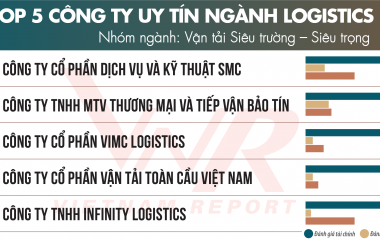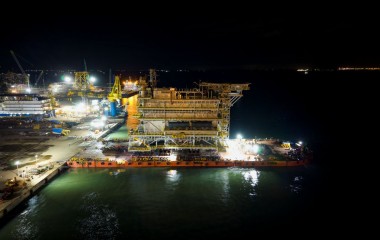What does green logistics contribute to a sustainable economy?
To address the impact of climate change, experts say, the industry must radically transform and apply sustainable solutions such as using renewable energy, electric transport, deploying sustainable waste management systems, and tailored green infrastructure solutions...
Green logistics helps the economy to ensure net zero (carbon neutrality), apply many new technologies, and preserve the natural ecosystem.
A report released by the Adecco Group shows that more than 1.47 billion jobs globally depend on a stable climate. In particular, the Middle East and North Africa are the two regions most vulnerable to the effects of climate change, posing a myriad of risks that have the potential to devastate the lives of hundreds of millions of residents in this region.
To address the impact of climate change, experts say, the industry must radically transform and apply sustainable solutions such as using renewable energy, electric transport, deploying sustainable waste management systems, and adapting green infrastructure solutions... Green logistics will make a significant contribution to improving the environment and supporting the sustainable development of the economy.
Guaranteed net zero
Many countries are trying to move towards a zero-carbon future, ensuring workers and communities can participate in the green economy. Meanwhile, the International Labor Organization estimates that around 6 million jobs in coal power, oil extraction, and related industries could be eliminated by 2030. This requires a mining plan training and retraining, in order to move this workforce to green fields.
Oxford Economics economists estimate that green activities could create economic opportunities worth up to $10,300 billion by 2050, or about 5.2% of global GDP.
Innovative technology and solutions
New technology will pave the way for businesses to come up with a unique competitive strategy. A trained green workforce can also be ready to deliver ideas, and products for key projects, goods, and services. To do this, policymakers should start with developing a comprehensive transformation roadmap detailing the expertise and skills required by different sectors.
In addition, businesses need to assess the current skills of the workforce, identify economic needs, and implement green workforce development programs. Nowadays, real estate developers are increasingly using more energy- and resource-saving technologies in the construction process. On the other hand, the transportation and logistics industry also utilizes renewable energy sources and energy-saving technologies in daily operations.
Conservation of natural ecosystems
To preserve natural ecosystems, we need to align consumer behavior and responsibility toward sustainable lifestyles. Schools should also educate the younger generation about climate change and develop sustainable solutions in career guidance. Furthermore, the role of vocational schools will be crucial in equipping them with the right skills to succeed in developing a green economy.
Countries should work to improve the skills of their workforce so that they can stand out in an ever-evolving market, while at the same time introducing more sustainable practices.
Related Posts
New Posts
- HOLIDAY NOTICE – NEW YEAR 2026
- Top 10 & Top 5 Reputable Logistics Companies in 2025
- NOTICE OF NATIONAL DAY HOLIDAY – SEPTEMBER 2ND PROUD TO BE VIETNAMESE
- PPL successfully performs site-move and load-out of record-breaking 4,000-ton offshore substation topside fabricated by PV Shipyard
- HOLIDAY ANNOUNCEMENT: REUNIFICATION DAY & INTERNATIONAL LABOR DAY (April 30 - May 1, 2025)
- ANNOUNCEMENT OF HUNG KINGS’ COMMEMORATION DAY 2025

_cr_380x240.png)

_cr_380x240.jpg)


_cr_380x240.png)
Comments